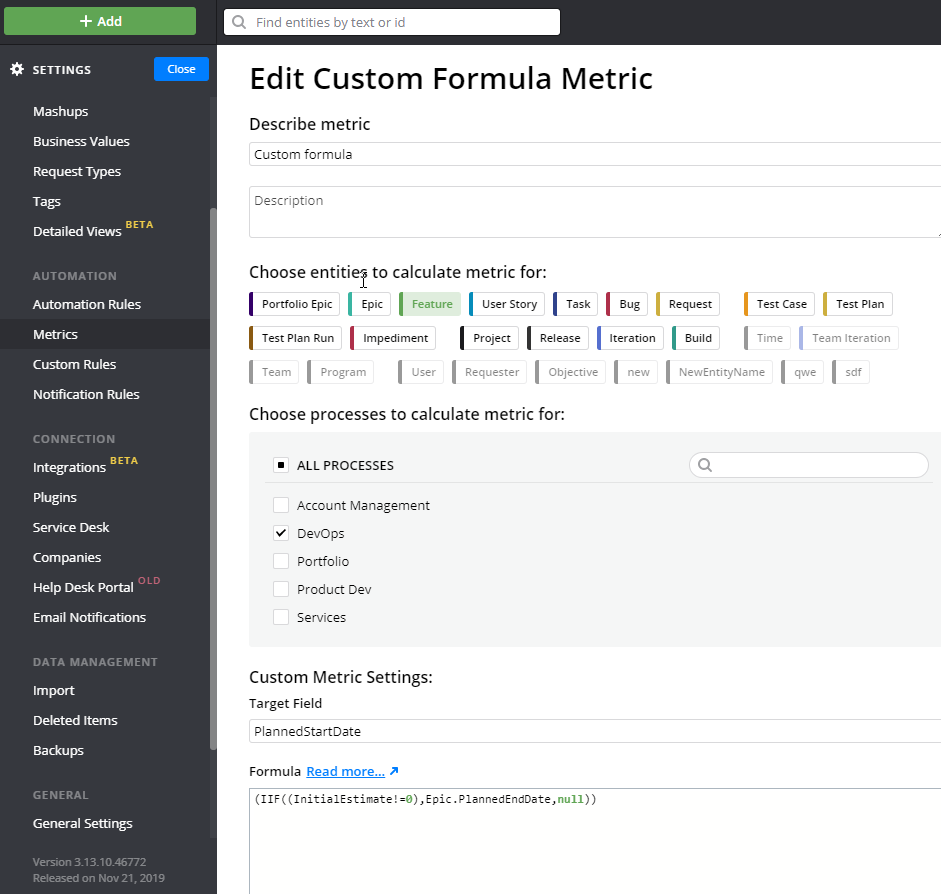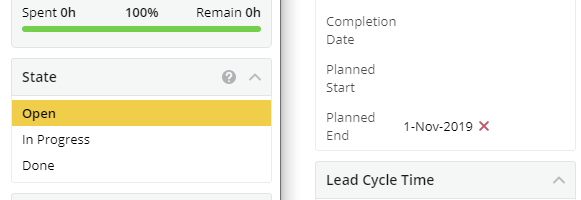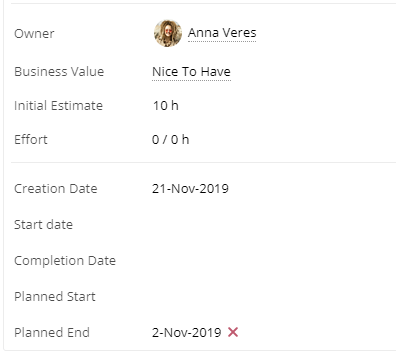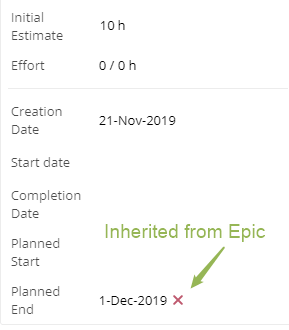Customize Planned Dates with Metrics
Supported Targetprocess version is 3.13.11.
Previously, you could only set Planned dates via metrics using Custom Fields, but now you can set native Planned Dates too.
A new Planned Date Metric can be created in Settings > Metrics > Add > Custom Formula. Select Planned Start Date or Planned End Date as a Target Field.

The Planned Dates of an entity can be based on the Initial Estimate or Effort, on Iteration/Release/Team Iteration dates, or on Relations, such as being inherited from children to parents and parents to children.
Below you will find several examples of Planned Date setting.
Inherit Planned Dates from children to parents.
Feature Planned End Date can be selected from a child User Story when the Progress of the Feature is not equal to 0.
(IIF((Progress!=0),UserStories.Min(PlannedEndDate),null))

Calculate Planned End Date based on the Initial Estimate or Effort.
(IIF((Effort!=0),UserStories.Max(PlannedEndDate),null))
(IIF((InitialEstimate!=0),UserStories.Max(PlannedEndDate),null))

Inherit Planned Dates from parents to children.
Planned Dates can be inherited from parents to child entities, for example, from Epic to Feature.
(IIF((InitialEstimate!=0),Epic.PlannedEndDate,null))

Limit Planned Dates based on Relations.
When you set the Planned Start Date for an entity, the Metric Formula checks whether the item can actually be started on this date, or if there is an inbound dependency which ends later than this date. If such a dependency is found, the Planned Start Date of the item will be equal to the Planned End Date of this dependency:
(IIF((StartDate>InboundAssignables.Max(EndDate)),InboundAssignables.Max(EndDate),null))
Set Planned Dates based on Iteration/Release/Team Iteration dates.
Planned dates can be inherited from Iteration/Release/Team Iteration dates.
Release.StartDate
Updated over 5 years ago
